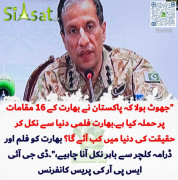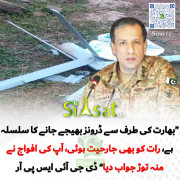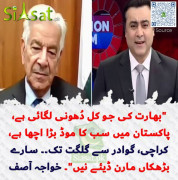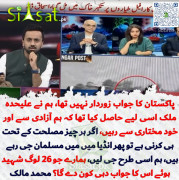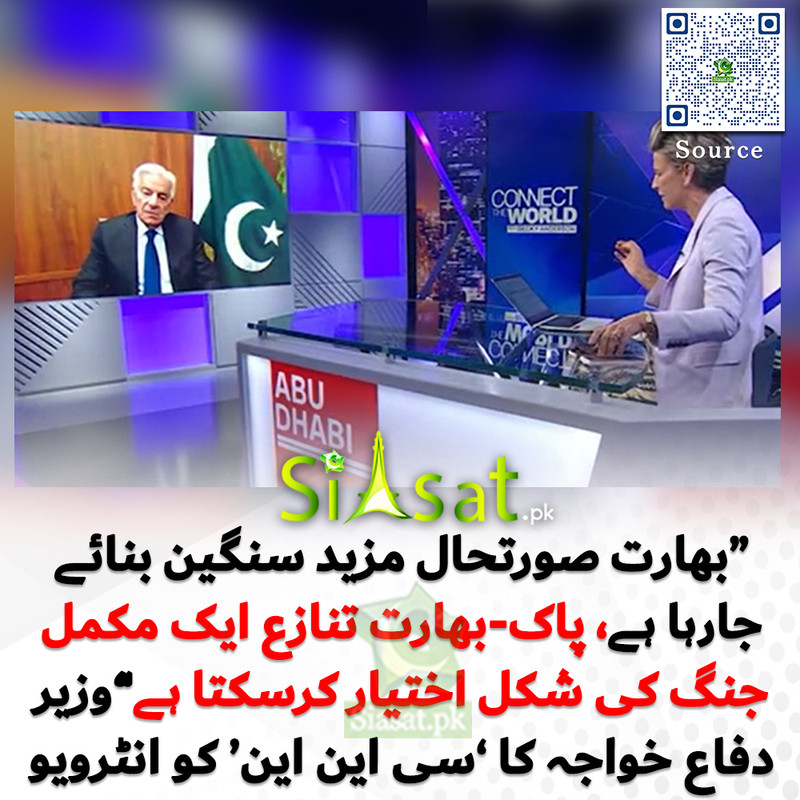On this weeks expert cheat sheet, Live Mint gives you ten facts about the Armed Forces Special Powers Act (AFSPA) to help you fully understand the controversial act that is causing so much protest. 1. As separatist groups in Indias north-eastern states grew more extreme, state administrations became incapable of controlling internal disturbance. This prompted parliament to initially pass a six month ordinance which gave the army special powers in disturbed areas. The ordinance was formalised into its present form the Armed Forces Special Powers Act (AFSPA) on 11 September 1958.
2. AFSPA confers special powers on armed forces in disturbed areas . This definition was initially given to include the states of Arunachal Pradesh, Assam, Manipur, Meghalaya, Mizoram, Nagaland and Tripura. It was then extended to Jammu and Kashmir as the The Armed Forces (Jammu and Kashmir) Special Powers Act in July 1990. A Governor in a state or the Central government in Union Territories can declare an entire state/union territory or any part of it as a disturbed area and deem that armed forces are necessary to aid civil authorities.
3. Under the act, any officer of the armed forces if he considers it to be necessary, may fire upon or otherwise use force, even causing death, upon anyone deemed to be acting in contravention of any law or order, after giving due warning to those concerned.
4. The act also prohibits the assembly of five or more persons or the carrying of weapons. Officers can also destroy any shelter from which armed attacks are made or are likely to be made, or any training camp utilized as a hide-out by armed gangs.
5. AFSPA also allows armed forces to arrest persons without warrant, on suspicion that they are likely to commit a major offence. They may also use force if needed. They may also enter and search a premises without a warrant and make arrrests on the suspicion that property or arms might be stolen. In case of an arrest however, the army authority is duty bound to handover the person(s) to the officer-in-charge of the nearest police station with the least possible delay along with a report on the circumstances of the arrest.
6. The central government has to sanction any prosecution, suit or legal proceeding made against any person who uses AFSPA to carry out his or her duties. This immunity provision was included to protect army officers from facing human rights violations.
7. Wherever AFSPA has been in operation, enforced disappearances, extra-judicial executions, torture, rape and arbitrary detention are routinely reported. In July 2004, a dozen Manipuri women marched naked behind a banner alleging the rape and custodial death of 32-year-old Thangjam Manorama at the hands of the Assam Rifles personnel. On 23 March 2009, UN Commissioner for Human Rights Navanethem Pillay asked India to repeal the AFSPA. She described it as a dated and colonial-era law that breaches contemporary international human rights standards.
 8. A committee to review ASFPA set up by the Union Home Ministry and headed by former Supreme court judge Justice Jeevan Reddy submitted its report to the government in 2005. The report recommended ASFPA be repealed. The Second Administrative Reforms Commission, and the Working Group on Confidence-Building Measures in Jammu and Kashmir, have also recommended the repealing of AFSPA. Prime Minister Manmohan Singh promised to amend the act in 2006.
8. A committee to review ASFPA set up by the Union Home Ministry and headed by former Supreme court judge Justice Jeevan Reddy submitted its report to the government in 2005. The report recommended ASFPA be repealed. The Second Administrative Reforms Commission, and the Working Group on Confidence-Building Measures in Jammu and Kashmir, have also recommended the repealing of AFSPA. Prime Minister Manmohan Singh promised to amend the act in 2006.
9. Home minister P Chidambaram told Parliament earlier this month (August 2010) that it was incumbent on the government to fulfill its promise on amending AFSPA. His ministry has recommended several amendments to make AFSPA less draconian, as a result of the wide-spread criticism it has received. He also suggested its withdrawal from certain districts in Jammu & Kashmir where the Army is not deployed.
10. But the Army, with support from the defence ministry, remains strongly opposed to any major dilution or phased withdrawal of AFSPA from Jammu & Kashmir as of now. It holds that any such step will have an adverse effect on how armed forces operate in the state.
ANOTHER SHINNING EXAMPLE OF SHUNNINIG INDIA!!!!!!!!!!!!!!!!
2. AFSPA confers special powers on armed forces in disturbed areas . This definition was initially given to include the states of Arunachal Pradesh, Assam, Manipur, Meghalaya, Mizoram, Nagaland and Tripura. It was then extended to Jammu and Kashmir as the The Armed Forces (Jammu and Kashmir) Special Powers Act in July 1990. A Governor in a state or the Central government in Union Territories can declare an entire state/union territory or any part of it as a disturbed area and deem that armed forces are necessary to aid civil authorities.
3. Under the act, any officer of the armed forces if he considers it to be necessary, may fire upon or otherwise use force, even causing death, upon anyone deemed to be acting in contravention of any law or order, after giving due warning to those concerned.
4. The act also prohibits the assembly of five or more persons or the carrying of weapons. Officers can also destroy any shelter from which armed attacks are made or are likely to be made, or any training camp utilized as a hide-out by armed gangs.
5. AFSPA also allows armed forces to arrest persons without warrant, on suspicion that they are likely to commit a major offence. They may also use force if needed. They may also enter and search a premises without a warrant and make arrrests on the suspicion that property or arms might be stolen. In case of an arrest however, the army authority is duty bound to handover the person(s) to the officer-in-charge of the nearest police station with the least possible delay along with a report on the circumstances of the arrest.
6. The central government has to sanction any prosecution, suit or legal proceeding made against any person who uses AFSPA to carry out his or her duties. This immunity provision was included to protect army officers from facing human rights violations.
7. Wherever AFSPA has been in operation, enforced disappearances, extra-judicial executions, torture, rape and arbitrary detention are routinely reported. In July 2004, a dozen Manipuri women marched naked behind a banner alleging the rape and custodial death of 32-year-old Thangjam Manorama at the hands of the Assam Rifles personnel. On 23 March 2009, UN Commissioner for Human Rights Navanethem Pillay asked India to repeal the AFSPA. She described it as a dated and colonial-era law that breaches contemporary international human rights standards.
 8. A committee to review ASFPA set up by the Union Home Ministry and headed by former Supreme court judge Justice Jeevan Reddy submitted its report to the government in 2005. The report recommended ASFPA be repealed. The Second Administrative Reforms Commission, and the Working Group on Confidence-Building Measures in Jammu and Kashmir, have also recommended the repealing of AFSPA. Prime Minister Manmohan Singh promised to amend the act in 2006.
8. A committee to review ASFPA set up by the Union Home Ministry and headed by former Supreme court judge Justice Jeevan Reddy submitted its report to the government in 2005. The report recommended ASFPA be repealed. The Second Administrative Reforms Commission, and the Working Group on Confidence-Building Measures in Jammu and Kashmir, have also recommended the repealing of AFSPA. Prime Minister Manmohan Singh promised to amend the act in 2006.9. Home minister P Chidambaram told Parliament earlier this month (August 2010) that it was incumbent on the government to fulfill its promise on amending AFSPA. His ministry has recommended several amendments to make AFSPA less draconian, as a result of the wide-spread criticism it has received. He also suggested its withdrawal from certain districts in Jammu & Kashmir where the Army is not deployed.
10. But the Army, with support from the defence ministry, remains strongly opposed to any major dilution or phased withdrawal of AFSPA from Jammu & Kashmir as of now. It holds that any such step will have an adverse effect on how armed forces operate in the state.
ANOTHER SHINNING EXAMPLE OF SHUNNINIG INDIA!!!!!!!!!!!!!!!!

